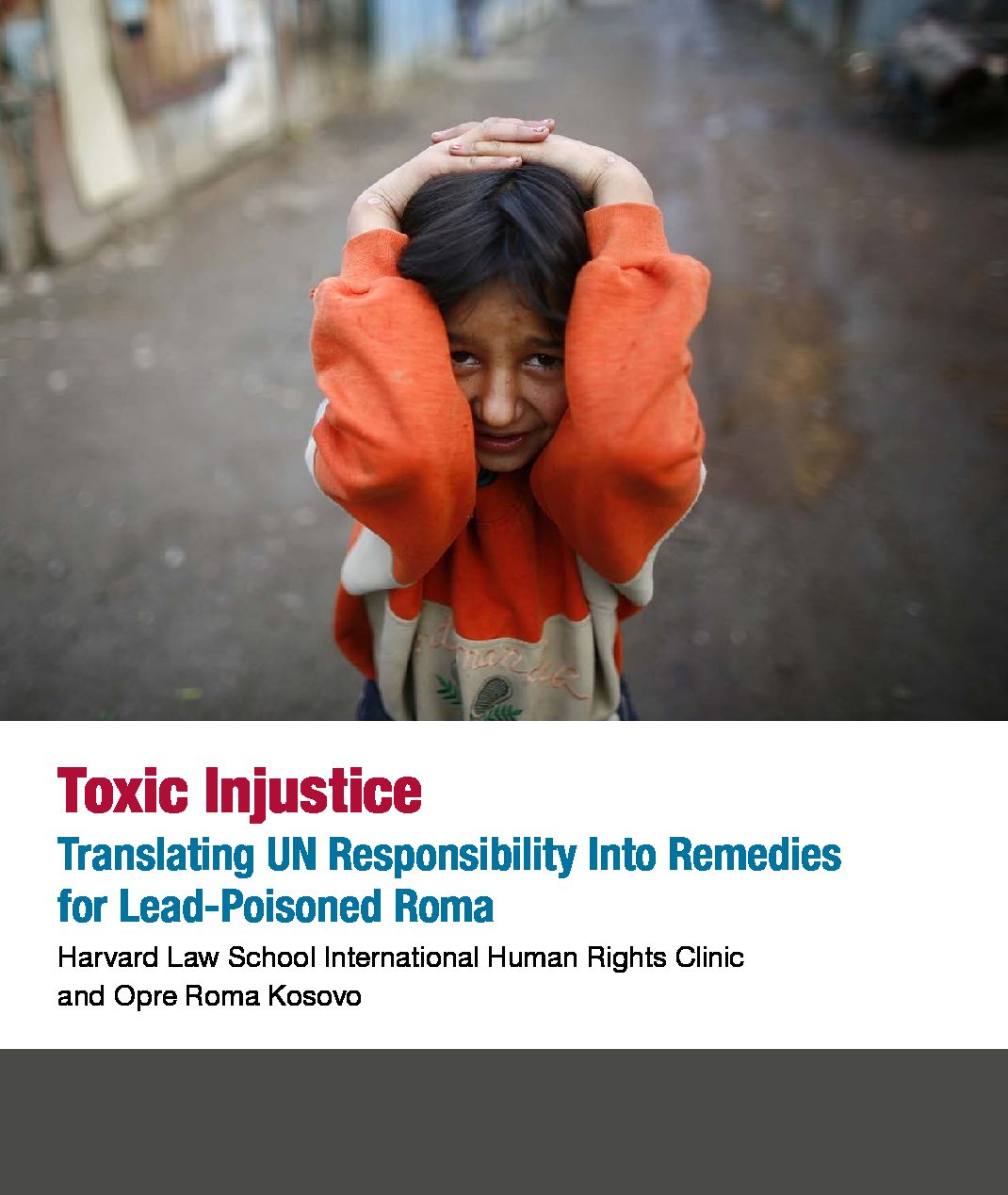November 9, 2022
New report from Harvard Law Clinic, Opre Roma Kosovo spotlights urgent need for remedies
(November 9, 2022, Pristina, Kosovo; Cambridge, MA) —The UN has failed to implement a decision by its own human rights panel finding it responsible for remedies to Roma victims of lead poisoning, leaving them to suffer ongoing injuries, according to a report released today by Harvard Law School’s International Human Rights Clinic and Opre Roma Kosovo.
The findings reveal significant accountability gaps that the UN must close to build the organization’s legitimacy among vulnerable populations.
In 1999, while serving as de facto government in Kosovo, the UN housed over 600 Roma in camps near toxic slag heaps. The camps remained for over a decade, and the resulting lead poisoning – which produced some of the highest levels of lead ever recorded in humans – led to the death of multiple camp residents and caused serious ongoing health effects.
“These communities still suffer severe health problems today. COVID makes action even more urgent because the results of lead poisoning make the victims extra vulnerable,” said Sebastian Šerifović, Advocacy Team Lead with Opre Roma Kosovo.
After pursuing multiple legal avenues, justice still evades the victims. The report, “Toxic Injustice: Translating UN Responsibility into Remedies for Lead-Poisoned Roma,” reveals that the UN manipulated its own legal processes to avoid taking responsibility for the human rights violations.
“We found that the UN continually revictimized already marginalized Roma communities by trapping them in lengthy legal processes that promised redress but only resulted in an evasion of responsibility,” said Beatrice Lindstrom, the Clinical Instructor who supervised the project in the Harvard Clinic.
In 2016, the Human Rights Advisory Panel (HRAP), established by the UN in 2006 to decide its own responsibility for human rights violation while serving as interim administration in Kosovo, found the UN responsible for violating the camp residents’ rights and recommended a set of remedies, including a public apology and compensation. But UN Secretary-General António Guterres’ sole response was to announce a voluntary trust fund benefitting Roma communities in Kosovo generally, without any specific attention to the camp residents. In five years, the fund has received a single $10,000 donation from Qatar.
The HRAP decision came after a decade-long legal fight in which the UN hindered and delayed the victims’ access to justice at every turn, the report finds. Victims first filed for compensation from the UN in 2006, based on legal rules that require the UN to settle claims directly with victims. But the UN sat on the claims for five years, only to dismiss them without a clear justification.
Meanwhile, in 2008, the UN established HRAP with the specific aim of strengthening accountability for UN wrongdoing. But when the victims turned there, the UN again thwarted justice by changing the rules midstream, moving deadlines, and, eventually, ignoring the HRAP decision all together.
“The UN is acting like judge and jury. It defines the law on its own terms then leaves its victims with nowhere to turn,” Lindstrom added.
The report identifies concrete and feasible steps the UN could now take to finally meet its obligations to the victims and strengthen its internal accountability structures, including meeting with the community and making modest financial investments in compensation.
“The UN has the power to deliver justice in this case, and it can do so in a few simple steps. The symbolic value of those moves to the victims and to the UN itself would be immense,” Šerifović added. “At a time when the UN is facing a growing legitimacy crisis, such action could go a long way to signaling a strong commitment to human rights and accountability that starts with the UN itself,” he said.



